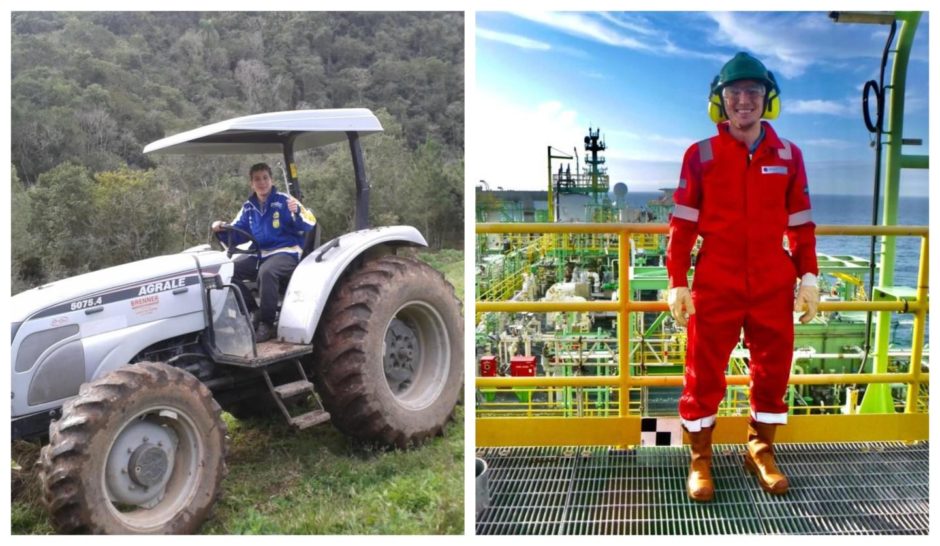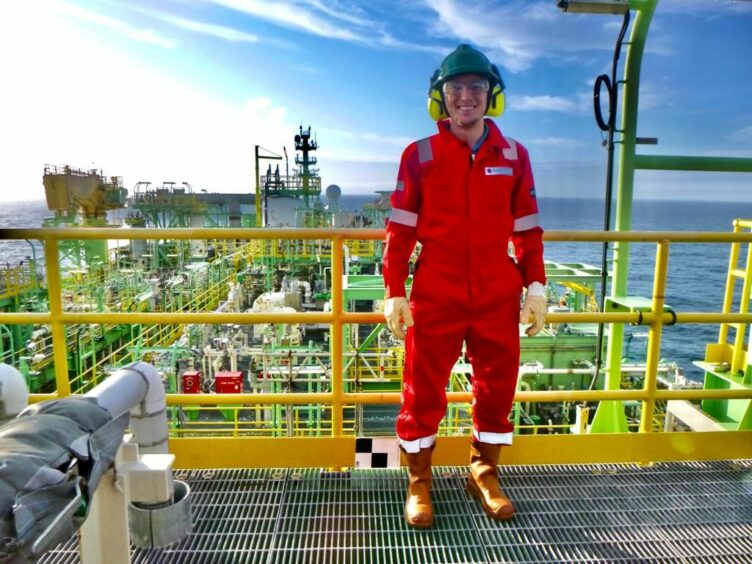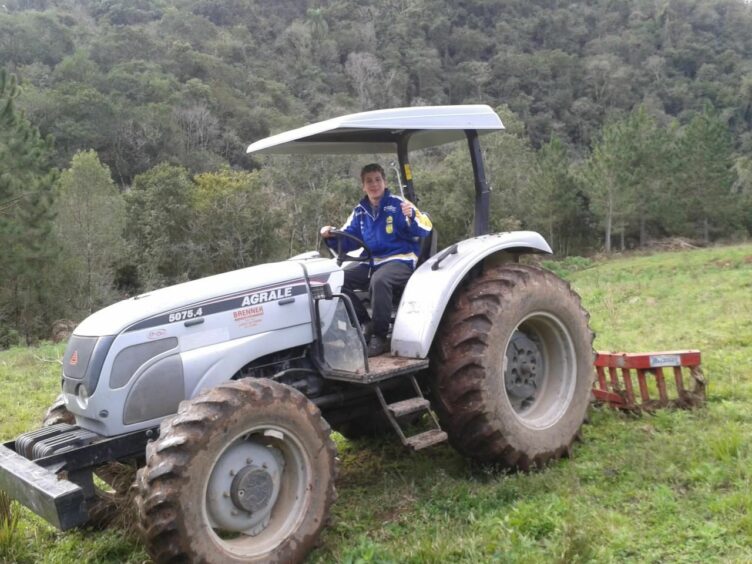
An oil and gas worker has described how his “dream came true” having gone from a small rural town in Brazil to a North Sea FPSO.
Eight years ago Natan Battisti took the decision to leave Progresso in southern Brazil, with a population of just 5,000, and pursue petroleum engineering.
“I decided that I wanted more, and my dad didn’t help me to become a football player, I was too short”, he said.
“The opportunities in the region were to go to the city and work in the supermarkets if you don’t want to work on the farm.
“So I agreed with my dad that if I worked on the tobacco farm for one more year, harder than we’ve done before, he would pay for me to study overnight to be able to apply for the tests to go to university.”
Natan then went from his town, which lies around 1,200 miles from Rio de Janeiro, to the Federal University of Pelotas, becoming one of the only people in his region to do so, where he started studying and joined the Society of Petroleum Engineers (SPE).
Having been aware of the need for petrol and diesel to power his farm’s tractors, and indeed the fuel for the vehicle his father took to take local kids to school, he discovered his “dream” at university to go out and work offshore, having heard about the experience from people in the industry.
“The dream was building up, once I started university I could see my first assignments, first classes in geology, and started to meet new people that worked in the oil and gas industry and I could see how interesting offshore was.”
Until the last barrel
Natan had been scheduled to go offshore in Brazil but, as he moved to a new role in the UK with Harbour Energy and Covid restrictions came down, his ambitions of going offshore were once again curtailed.
However, now group development and operations technical engineer for Harbour, he finally got his chance earlier this year, coming on board the Catcher FPSO (floating production storage and offloading vessel).
Contrary to what he’d heard, and accurate in some cases, that vessels can roll dramatically in the harsh North Sea waters, he likened Catcher to “being inside a building” due to its design and stability.
Nontheless, the 26-year-old said his “dream came true”, with the culmination of eight years of work, thanking his father and many mentors along the way.
Natan “wanted to do something different” with his career by going into oil and gas, but it has not gone unnoticed that many of his peers have not been so lucky.
He established the Até o Último Barril (‘Until the last barrel’) group in Brazil for students and unemployed young professionals who are struggling to find work, with too many petroleum courses and not enough jobs to go around.
“We produce a lot of oil but most of the (jobs) are with Petrobras. So 60-70% of the graduates in Brazil become unemployed or they need to go to another area because the oil and gas sector cannot take them.
Natan also voiced his opposition to an editorial in a UK newspaper this month stating why graduates “don’t want careers in oil and gas” and how the industry is becoming “taboo”.
He said: “It’s really not true, it could be true in some parts of London, in some parts of the UK, in some parts of Europe, but the world is bigger than that.
“That’s was one of the purposes of ‘Until the last barrel’ which supports students in Brazil, we want to tell people that the energy transition is more complex than it appears and the world needs energy.”
Recommended for you



